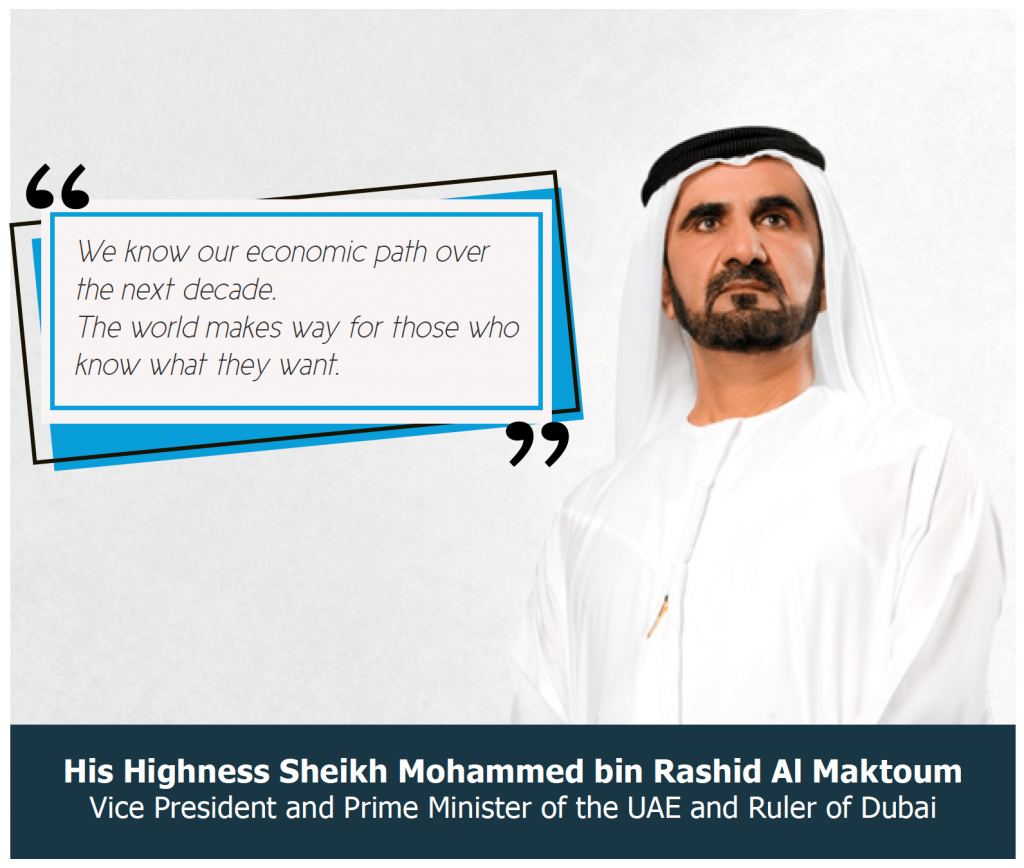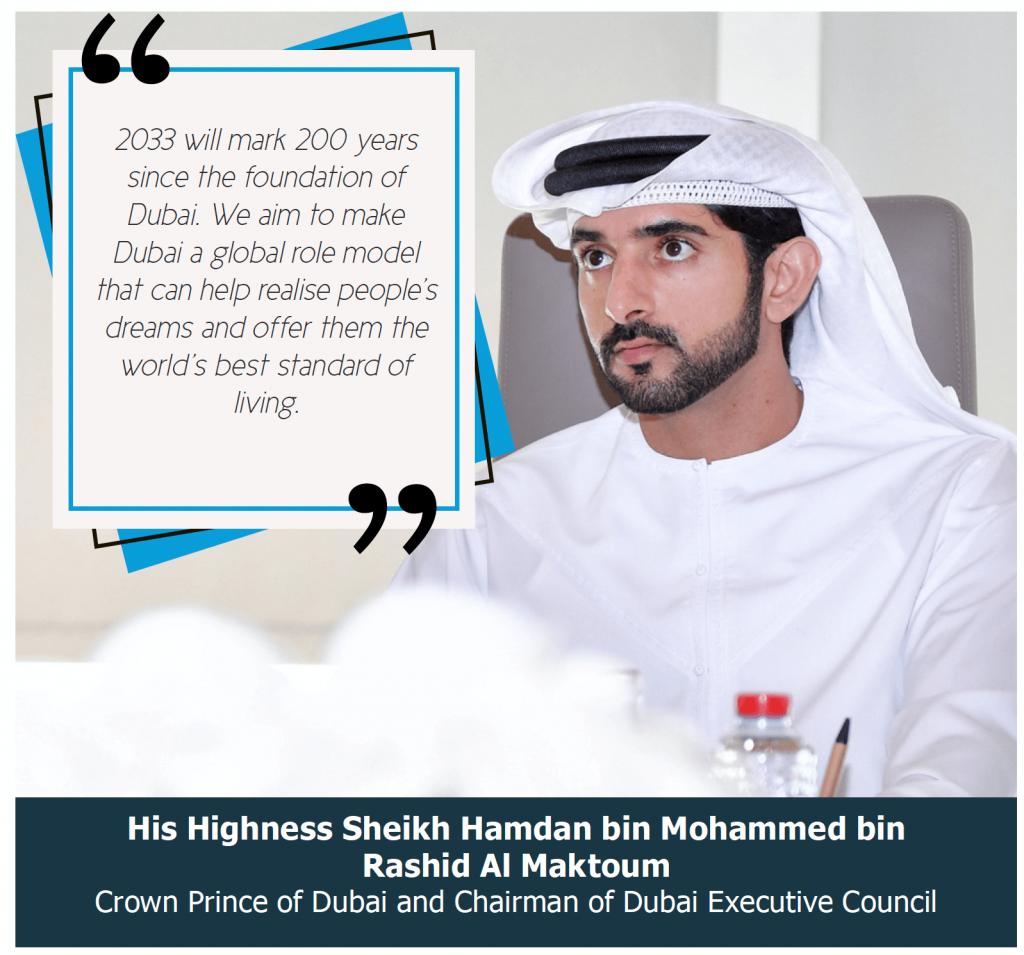His Highness Sheikh Mohammed bin Rashid Al Maktoum, Vice President and Prime Minister of the UAE and Ruler of Dubai launched the Dubai Economic Agenda ‘D33’ – an agenda that aims to double the size of the economy of the Emirate to USD 8.7 trillion (AED 32 trillion) over the next 10 years.

The agenda will be carried out through 100 transformative projects that will make Dubai a global digital economy leader and a global business centre. The plan details on how the Emirate will become a centre for sustainability and economic diversification and an incubator and enabler of skilled entrepreneurs.
Launching the D33 Agenda, H.H. Sheikh Mohammed said by 2033 Dubai will be among the top 3 global cities and will rank as one of the top 4 global financial centres.
100 Transformative Projects
FDI to Dubai is expected to increase over AED 650 billion over the next ten years.
Dubai also aims to double the foreign trade to reach AED 25.6 trillion by partnering with 400 cities.
Government expenditures to increase to AED 700 billion in the next 10 years compared to AED 512 billion in the past decade.
Dubai is expecting private sector investments to go upto AED 1 trillion by 2033.
Digital transformation projects to contribute AED 100 billion annually for the next ten years.
The Emirate is optimistic that the value of domestic demand for goods and services will reach AED 3 trillion in the next decade, compared to AED 2.2 trillion in the past ten years.

Dubai’s Digital Economy and Startup Ecosystem
According to H.E. Omar Sultan Al Olama, Minister of State for Artificial Intelligence, Digital Economy and Remote Work Applications, digital economy will contribute to more than 20% of the UAE’s GDP by 2031 compared to the present 9.7%.
This reflects Dubai’s determination to establish itself as a key tech hub and leading global destination for digital companies. The Emirate aims to attract 300 digital startups and 100 international experts in advanced technologies by the end of 2024 and is bringing in changes to the existing laws and policies that would support the growth of the digital economy and enhance the business environment to attract global digital firms.
Dubai – Global Expansion Springboard for Indian Startups
It is impressive to note that over 83,000 Indian companies are registered with the Dubai Chambers and Indian companies create more than 1 million jobs in the UAE.
Trade volumes have grown to USD 180 million from USD 100 million in 2019 and is projected to take a quantum jump to reach more than USD 100 billion within five years from the CEPA agreement signed between the UAE and India, the two vibrant economies of the region.
In a recent statement H.E. Mohammad Ali bin Rashed Lootah, President and CEO of Dubai Chambers mentioned that more than 30 per cent of the startup community in Dubai comes from India.
Many Indian startups see Dubai as a gateway to the EMEA region and Dubai gives them an opportunity to understand the cultural nuances as the Emirate has people from almost 200 countries.
It was in November 2022 that Wipro, the leading Indian tech company announced that it will have its Asia-Pacific, Middle East and Africa (APMEA) strategic market unit headquarters in Dubai which will facilitate their global expansion and investments plans.
In a report by the Boston Consulting Group (BCG) Dubai was compared with other 11 global tech hubs, and was highlighted as a leader, based on the strategies and policies the leadership of Dubai has employed to attract tech and digital talent from around the world.
Dubai’s Golden Visa system and remote work visas have proven to be the catalyst for attracting almost 10,000 techies from the Indian startup ecosystem to move to Dubai in the past two years.
The D33 Agenda’s focus on the digital economy will further accelerate the expansion of Indian Startups to the region by having Dubai as the hub. The support Dubai gives for the crypto and blockchain startups have attracted lot of Web3 tech startups to the region.
Dubai through Freezones like DMCC have attracted hundreds of crypto companies it’s budding digital asset ecosystem. H.E. Ahmed Bin Sulayem, CEO of DMCC has pledged his support to companies in high-impact sectors such as Web3 and blockchain technologies. DMCC’s Crypto Centre serves as a coworking and networking space for entrepreneurs in the crypto and blockchain sectors and a sizeable number of them are Indian entrepreneurs.
The ‘India-UAE startup corridor,’ targets a minimum of 50 validated start-ups based in India and the UAE with a mission to foster 10 of them to become unicorns by 2025.
India has the 3rd largest startup ecosystem in the world and is expected to have an annual growth of almost 15% for the next ten years. India sees startups as the engine for innovation-fueled economic growth.
Indian Prime Minister Shri Narendra Modi recently lauded India’s startup ecosystem for achieving the 100 unicorns milestone and expressed confidence in the country’s unicorns as they are diversifying and are concentrating on the new tech areas of ecommerce, fintech, edtech and agritech.
India has enormous tech talent, graduating from the IITs, the IIMs and colleges of excellence across the country. This becomes a synergetic relationship where the nations can co-create unicorns for the global market, thus contributing to Dubai’s aim of 30 unicorns by 2033.
Dubai Economic Agenda for the next decade will certainly cement the status of the Emirate as a global tech hub and accelerate growth by investing in human development, skillsets, and advanced technology and consolidate Dubai’s knowledge-based economy. D33 is bound to consolidate Dubai’s position as the gateway to MENA and APMEA regions.
Final Words
“The future belongs to those who can imagine it, design it and execute it. It isn’t something you await, but rather create.” These words of His Highness Sheikh Mohammed Bin Rashid Al Maktoum portrays how Dubai gears up for the future. As he rightly puts it, Dubai is building a new reality for it’s people, a new future for it’s children and a new model of development.

